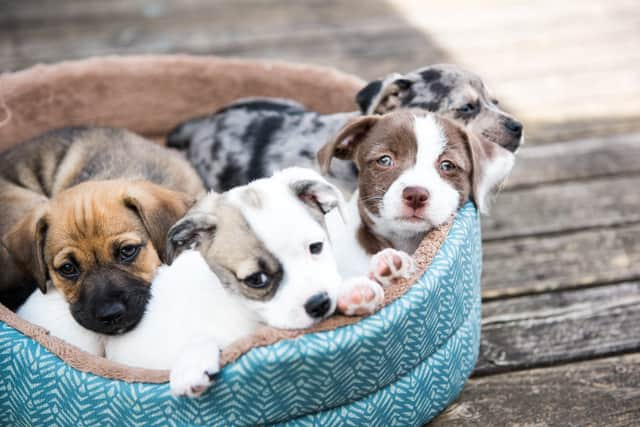Warning issued over criminal puppy sellers this Christmas - questions to ask breeders


They say a dog is not just for Christmas, and people have been warned to avoid buying a puppy from criminal sellers this festive season.
A warning has been issued to those looking to buy a puppy for a loved one this Christmas, over concerns around irresponsible or criminal sellers.
Advertisement
Advertisement
The Local Government Association (LGA) says people should be cautious of who they are buying pets from, particularly when agreeing a sale online.
While there are many reputable sellers, the profits available when there is high demand for pets, particularly dogs, continues to attract irresponsible and criminal sellers who treat animals poorly, the LGA, which represents councils in England and Wales, said.
How to tell if a breeder is responsible
Signs of a responsible breeder include:
- being able to provide a local authority licence if they are breeding and selling as a business
- having genuine paperwork for vaccinations, microchipping and any test results
- being available for detailed phone conversations about the dog
- arranging visits to meet the puppy along with its mother and siblings
Questions to ask a puppy breeder
The Kennel Club website recommends that anyone buying a puppy should ask the following questions:
- Did they breed the puppy themselves?
- How many puppies are there and how old are they?
- Will you be able to see where they were bred?
- Will you be able to see the mum?
- How old is the mother and how many litters has she had?
- Was the birth natural or was a caesarean section required? If a c-section was required, have they had one before and how many times?
- Will you be able to see the father?
- Have the puppies had any health problems?
- Have the parents been checked for inherited conditions?
- What is the puppy’s inbreeding coefficient?
- Can you have the registration details of the sire (father) and dam (mother)?
- Will the puppies be vaccinated and wormed before coming home with you?
The LGA said council teams work extremely hard to try to prevent sales by illegal and irresponsible sellers, but can often face difficulties with capacity, exacerbated when there is a surge in demand for pets.
Advertisement
Advertisement
Local environmental health teams are responsible for inspecting the local takeaway, investigating noise nuisance and monitoring air quality, as well as licensing animal breeders.
Nesil Caliskan, chair of the LGA’s safer and stronger communities board, said: “Buying pets from licensed sellers ensures the animals meet certain regulations and will have come from safe conditions. It also means that the seller can be traced if any issues arise after purchase.
“As demand rises, the number of people looking to profit does too, and councils need increased, specialist resources in this area to ensure illegal traders get caught before any animals are harmed.”
This article was originally published on our sister title, NationalWorld.